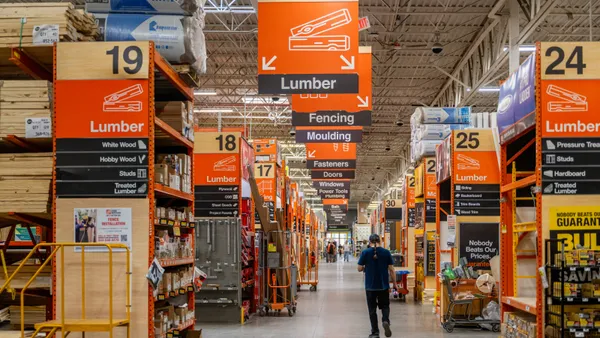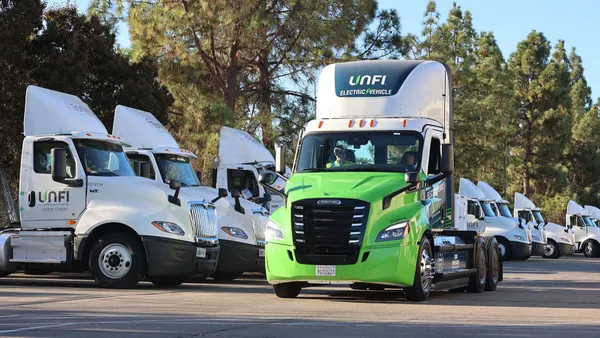Dive Brief:
- Boeing is shifting spare airplane parts around its distribution centers in the U.K. and around the world in preparation for a potential no-deal Brexit, Reuters reported citing a conversation with Ken Shaw, the company's head of supply chain management.
- "We are having our spares positioned in the right place," Shaw told Reuters. "We are continuously looking at the demand signals because we didn’t have to worry about it before between the London distribution centre and shipping a part to France. Now we are having to be more purposeful so we are redistributing inventory."
- Shaw told Reuters the company ships most of its parts from the U.K. to the U.S. or locations other than the European Union, so the final impact of Brexit is expected to be limited. A spokesperson for Boeing confirmed the Reuters report to Supply Chain Dive, but declined to comment further on when the shifting of parts began and what impact the company foresees from Brexit.
Dive Insight:
As Boeing, and many other companies, make moves to prepare for the uncertainty that lies ahead, the political sands in the U.K. are shifting.
Speaking before the House of Commons this week, U.K. Prime Minister Theresa May offered a new option for the government to consider: an extension of the quickly approaching March 29 deadline. May's preference would be for the government to agree on an exit deal before a vote on March 12. If this and a subsequent vote on March 13 fail, however, the extension is on the table, according to NPR.
"But I do not want to see Article 50 extended," May wrote in a Daily Mail editorial this week. "Our absolute focus should be on working to get a deal and leaving on March 29. Doing so would give businesses and citizens the certainty they deserve."
Meanwhile, Jeremy Corbyn, the leader of Britain's Labour Party, said this week his party would support a new referendum. But there isn't any consensus within parliament on what this might look like, according to Steve Barclay, Britain’s Brexit minister, Reuters reported.
All of this means a lot of uncertainty for the companies that do businesses between the U.K. and EU.
The government is trying to ease some of the tension.
"While we never give guarantees, we are confident that, if everyone – including suppliers, freight companies, our international partners, and the health and care system – does what they need to do, the supply of medicines and medical products should be uninterrupted in the event of exiting the EU without a deal," the government said in a release this week explaining how it planned to keep medicine moving in the case of a no-deal Brexit. It has also said it would offer a simplified customs process in the case of a no-deal break.
There are signs this uncertainty is hurting the U.K. economy. And Costas Milas, a professor of finance at the University of Liverpool, argued in The Conversation recently that an extension could do even more harm.
"There is little to suggest that, if the Article 50 process is extended, the uncertainty fog surrounding Westminster will lift," Milas wrote. "So merely extending Article 50 will do little to reassure businesses and consumers that there is light at the end of the Brexit tunnel."














